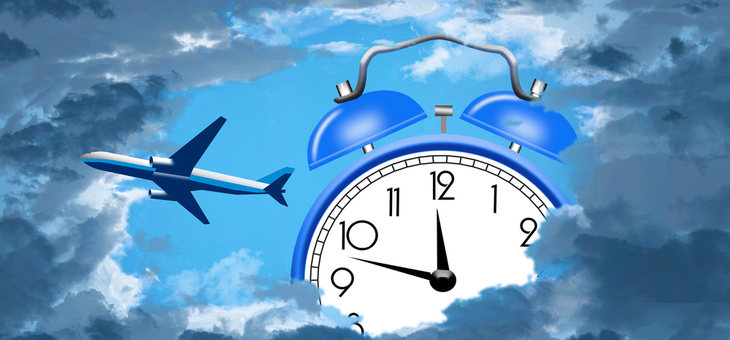It might be some time before we can fly long distance again but, when we do, we might be able to say goodbye to jet lag.
US scientists have been working on a fully implantable device that will control the body’s circadian clock, halving the time it takes to recover from disrupted sleep patterns.
A team of researchers from Northwestern University signed an agreement with the Defense Advanced Research Projects Agency (DARPA) to develop the wireless device.
Read more: Best destinations for a winter getaway
The US military is interested in the project because it will aid soldiers who frequently travel across multiple time zones, as well as assisting those who change between overnight and daytime shifts.
Nicknamed the ‘living pharmacy’ the program, will help address the challenges of travel, including jet lag, fatigue and gastrointestinal issues.
Combining synthetic biology with bioelectronics, the team will engineer cells to produce the same peptides that the body makes to regulate sleep cycles, precisely adjusting timing and dose with bioelectronic controls.
Read more: Winter well in Tasmania’s off season
When the engineered cells are exposed to light, they will generate precisely dosed peptide therapies.
“This control system allows us to deliver a peptide of interest on demand, directly into the bloodstream,” said Northwestern University’s Jonathan Rivnay.
“No need to carry drugs, no need to inject therapeutics and – depending on how long we can make the device last – no need to refill the device.
Read more: The first post COVID cruise from the UK
“It’s like an implantable pharmacy on a chip that never runs out.”
Beyond controlling circadian rhythms, the researchers believe this technology could be modified to release other types of therapies with precise timing and dosing for potentially treating pain and disease.
Professor Fred Turek, who worked on the project, said he was hopeful the technology may be able to be used to treat other sleep disorders.
“The experiments carried out in these studies will enable new insights into how internal circadian organisation is maintained,” said Prof. Turek.
“These insights will lead to new therapeutic approaches for sleep disorders as well as many other physiological and mental disorders, including those associated with ageing where there is often a spontaneous breakdown in temporal organisation.”
Do you suffer from jet lag when you take long haul flights? What is the worst jet lag you have endured while travelling? Why not share your thoughts in the comments section below?
If you enjoy our content, don’t keep it to yourself. Share our free eNews with your friends and encourage them to sign up.

